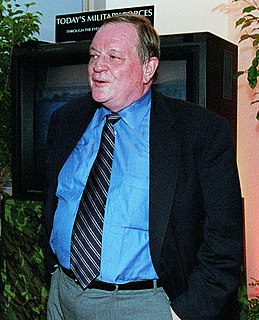A Quote by Niall Ferguson
The law of unintended consequences is the only real law of history.
Quote Topics
Related Quotes
The flow of action continually produces consequences which are unintended by actors, and these unintended consequences also may form unacknowledged conditions of actions in a feedback fashion. Human history is created by intentional activities but is not an intended project; it persistently eludes efforts to bring it under conscious direction.
The law is equal before all of us; but we are not all equal before the law. Virtually there is one law for the rich and another for the poor, one law for the cunning and another for the simple, one law for the forceful and another for the feeble, one law for the ignorant and another for the learned, one law for the brave and another for the timid, and within family limits one law for the parent and no law at all for the child.
Struggling against the legalism of simple obedience, we end by setting up the most dangerous law of all, the law of the world and the law of grace. In our effort to combat legalism we land ourselves in the worst kind of legalism. The only way of overcoming this legalism is by real obedience to Christ when he calls us to follow him; for in Jesus the law is at once fulfilled and cancelled.








































